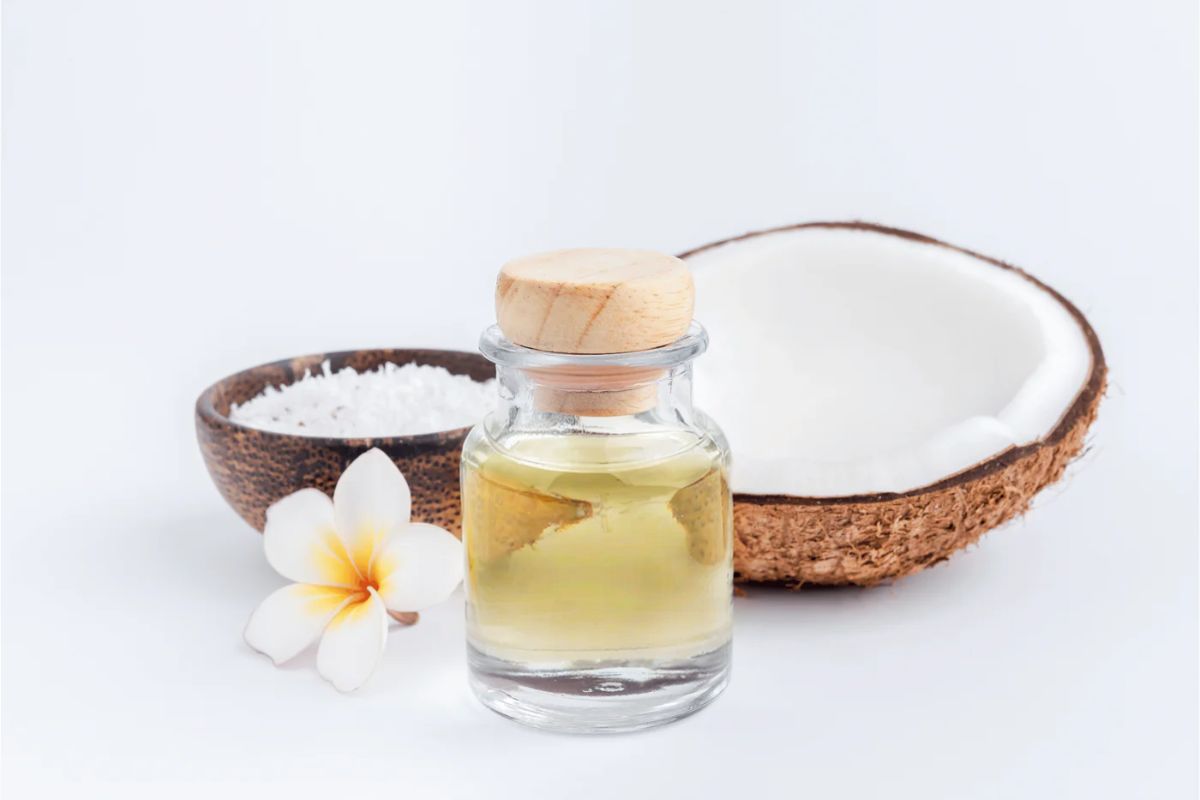Monoi oil is an ancestral skin care product typical of French Polynesia. It has been produced for centuries and has many and varied uses. Discover all the secrets of monoï oil.
Monoi and its many uses
Monoï is an oil obtained by macerating Tiare flower buds in coconut oil. It is therefore a natural, vegetable oil. It has always been used by Polynesians, but its fame has made it popular the world over.
Monoi oil was once used to massage babies. It is non-allergenic and extremely protective, even for the most fragile skin. Tahitian mamas would coat their newborns' bodies with the precious oil and massage them, both to loosen their muscles and to protect their skin from the sun and various attacks.
But monoi oil massages were also very popular with adults. In fact, Tahitian techniques are well known and developed throughout the world. Tahitian massage is rather unique in that it requires the practitioner to use hands, forearms and elbows. Naturally, monoi oil is used to relax the senses and relieve tension. Lovers also use monoi as a sensual oil.
There are other ways to use monoi, particularly in the beauty field. It is an extremely protective and nourishing oil. In other words, it regenerates damaged or excessively dry skin. It's ideal after sun exposure, or all year round after a shower.
In the same vein, monoi oil deeply moisturizes damaged, dry, brittle, normal and even oily hair. It's the ideal mask for restoring the vigor of your hair, just like the beautiful manes of the vahines.
There are many different monoi oils
The true ancestral monoï recipe is based on virgin coconut oil in which tiare flower buds ferment. However, for a variety of reasons, monoï can be adapted to other recipes. Some have even become official Polynesian recipes.
There are almost as many monoi oils as there are islands in the Polynesian archipelago. Indeed, each family had its own recipe. There was a time when tiare flowers were reserved for the nobility. No one other than Tahiti's wealthy personalities and the king could pick them. This is how monoi recipes began to differ. The mamas, not wishing to give up their ancestral rites, picked other flowers to replace the tiare.

Some have made monoï with frangipani flower, vanilla flower, Tamanu flower or simply coconut oil. Although monoi oil is normally vegetable and natural, some preparations also include an ingredient that is, to say the least, unexpected... Bernard L'Hermite. Indeed, many traditional Polynesian monoï recipes contain it.
As it happens, the little mollusc has an interesting abdomen for accelerating fermentation of the macerate. It is also said that this part of the hermit crab's body enhances the fragrance of the flowers used in the monoi. When the little beast is more discreet, traditionalists also use beach crabs or chevrettes (tiny freshwater shrimps).
However, to meet strong foreign demand, the monoï recipe had to be adapted. Monoï found in France, for example, is totally free of animal substances. To prevent counterfeiting, monoï has been granted an Appellation d'Origine. On these products, coconut oil has been replaced by coconut oil, and there is no Bernard L'Hermite either. Just oil and Tiare flower buds.
The reason why coconut oil is now being replaced by copra oil is quite simply because of its fragrance. Coconut oil tends to go rancid more quickly, and to compensate for transport and temperature variations, the traditional recipe had to be adapted to export the product without losing its virtues and intoxicating fragrance.
The benefits of monoi oil
Monoi oil is a true invitation to travel. Its unique fragrance replaces any fragrance or perfume. What's more, like all vegetable oils, monoï is a real benefit for the skin. It wraps the skin in a soft film, protecting it from external aggressions. Monoï deeply moisturizes the epidermis, restoring suppleness and youthfulness to the skin. It's a rich oil that rehydrates all skin types, from the driest to baby's skin.
It's not for nothing that Tahitians smear themselves with the precious nectar all year round. It protects their skin from drying out due to the sun's rays, as well as from salt, wind and sand. However, monoi oil is not a tanning oil, as it has no sun protection factor. It does, however, effectively soothe sunburn.
Finally, applied as a mask, monoi oil is extremely beneficial for all hair types.

 en
en 





